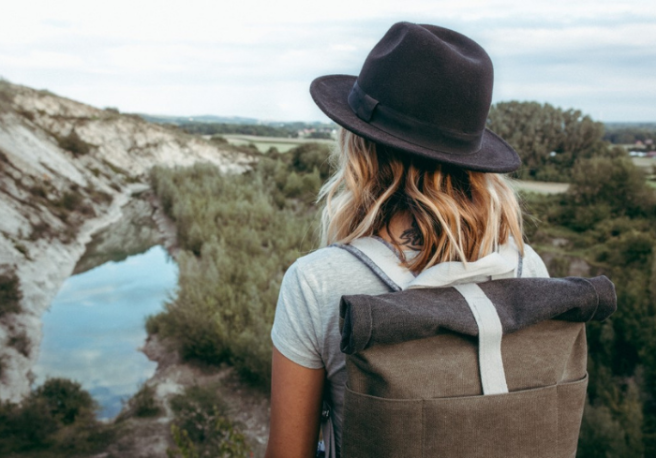
7 Tips for Hiking & Camping responsibly this Bank Holiday
With the sun briefly shining down on us this Bank Holiday weekend, it’s the perfect time to get out there and enjoy the great outdoors.
So, grab your hiking boots and suncream, some snacks for the road and plenty of water because this weekend we’re getting back to nature — which is where Galz Gone Wild comes into play.
Established in 2017 and now consisting of over 15,000 members, Galz Gone Wild is an outdoor business that organises weekly hikes, retreats, workshops and events in Ireland. It is aimed at giving women an equitable and inclusive environment to explore their love of the outdoors.
Mother nature offers us up all these amazing gifts that we get to experience and enjoy for free. All she asks for in return is that we respect and protect her.
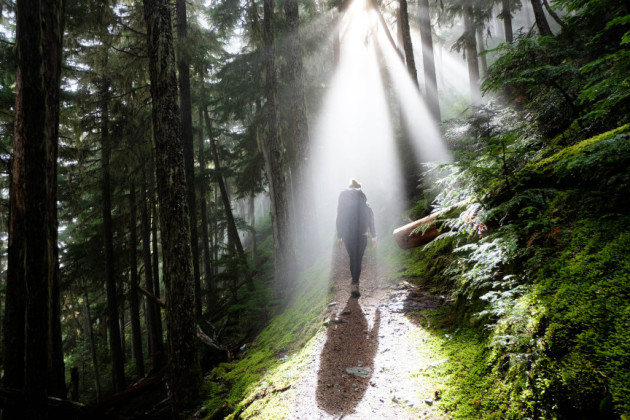
Mel McDermot from Galz Gone Wild wants to promote safety and responsibility in the great outdoors by sharing these 7 tips, which will hopefully leave you feeling more aware and happy in the knowledge that you are doing your bit to protect and minimise the impact you have on our outdoor environment.
-
PLANNING & PREPARING
-
Check the weather and fire warnings
-
Gain knowledge of the area you plan to hike/camp in – look at maps, websites, do research of the area if you can. If a route is closed, adhere to rules and change plans.
-
Plan your trip based on your ability and skills – if it's your first camping trip go to an area you are familiar with, it’s not the time to venture deep into the wilderness.
2. CAMPSITE LOCATION
-
For safety do not pitch your tent on or at the side of trails.
-
Confine impact to places which already show use – durable surfaces, such as rock and gravel, or on sites that have been so highly impacted will cause no additional disturbance. The less often a pristine campsite is used the better chance it has of remaining pristine.
-
Avoid camping close to water – by distancing camps from water, we are less likely to inadvertently pollute them.
-
If travelling in a group spread out tents at campsite
-
Always obey regulations and signs relating to campsite selection – e.g. ‘No camping here’
-
Before departing, take time to naturalise and help the site recover by making it less obvious as a campsite. Cover scuffed areas with native materials (such as pine needles), brush out footprints, and rake matted grassy areas with a stick.
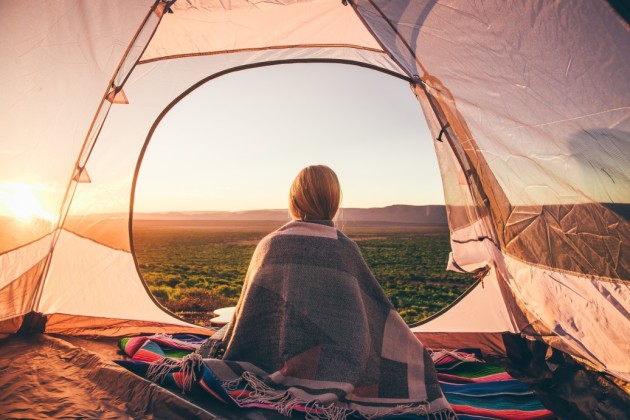
3. HUMAN, FOOD & WATER WASTE
Human waste:
-
If nature calls find a spot at least 70 steps away from a water source, trail and your campsite.
-
Dig a cat hole 6-8 inches deep
-
Pack out your used toilet paper – place it in a plastic bag and bring home.
-
Fill with the original dirt and disguise with native materials.
Period products:
-
Tampons – do not bury them because they don’t decompose and animals may dig them up. Pack out and bring home to discard of properly
-
Menstrual cups are a fantastic alternative. Simply follow the same steps of digging a cat hole.
Food waste:
-
Inspect your campsite and rest areas for rubbish, spilled foods and organic litter like egg shells, orange/ banana peels. These do not decompose quickly and can take months. Carry additional bags to pack out all rubbish.
Wastewater:
-
To wash dishes, carry water 200 feet away from streams or lakes. Strain dirty dishwater with a fine mesh strainer before scattering it broadly. Pack out the contents of the strainer in a plastic bag along with any uneaten leftovers. Scatter strained dishwater
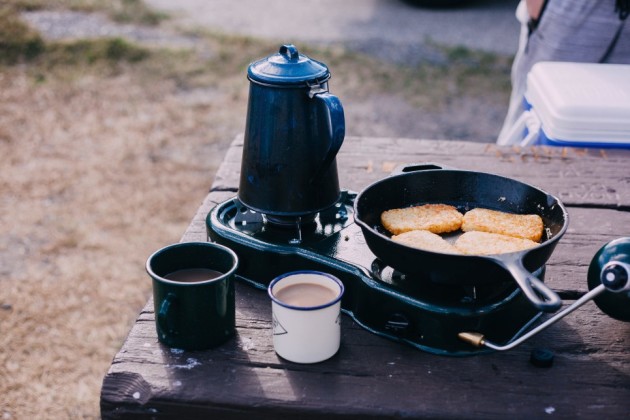
4. LEAVE WHAT YOU FIND
-
Allow others a sense of discovery by leaving rocks, plants, flowers, trees as you find them.
-
Also, consider the idea that good campsites are found and not made.
5. CAMPFIRES
-
Get Permission off the landowners first
-
Check Reports on the risk of wildfire – we currently have an orange warning at the moment which means no lighting of fires, bbs or other open ignition. To find out risk reports before you head out check https://www.teagasc.ie/crops/forestry/forest-fire-risk
-
Do you need a fire? Can you prepare your meals beforehand and minimise the need for fire, can you bring along a camping stove instead?
-
Follow the Five Ds in Wood Collection – Downed, Dinky, Dead, Distanced and Distributed.
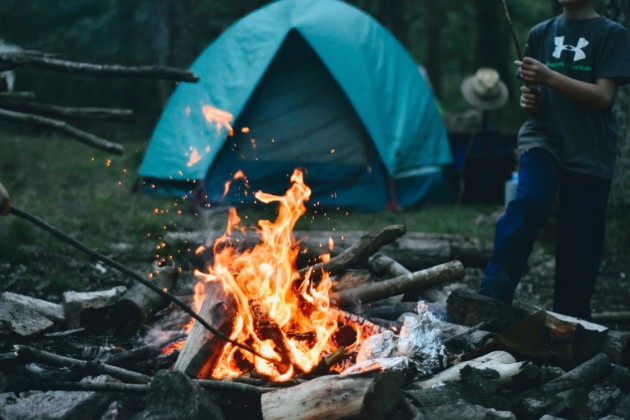
Downed: Don't snap branches off trees, either living or dead, because this scars them. Use only sticks from the ground that can be broken by hand.
Dinky: Smaller fires will have less impact. Restrict the size of wood selected, ranging from twigs the size of your little finger to no thicker than your wrist. Length should be from your wrist to your elbow. Larger pieces of downed wood play an important and unique role in nutrient recycling, water cycling and soil productivity. They provide shelter for wildlife and while decaying and germination sites for many plant species.
Dead: Never saw or hack a branch from a living tree. Only use deadwood available at ground level.
Distanced: In remote areas, gather firewood on the way to your camp so that there is less impact on a particular site and the area around your site retains a natural appearance.
Distributed: Smaller fires will completely burn to ash which makes the clean-up easier. Collect the ash remains and distribute them over a wider area, returning your site to its previous condition.
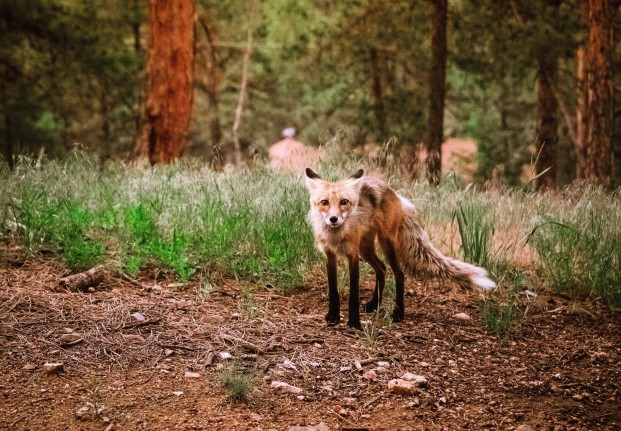
6. FLORA & FAUNA
-
Watch where you walk to avoid crushing vegetation.
-
Considerate campers observe wildlife from afar – remember that you are a visitor to their home.
-
Store food securely
-
Keep rubbish and food scraps away from animals.
-
Do not feed animals
-
Keep your distance, do not approach, pet or pick them up
-
Give animals space to cross your path
-
If you think an animal is injured head to irishwildlifematters.ie for more info on what to do or if you are in the vicinity of a national park alert the Mountain Ranger Office.
7. FELLOW CAMPERS
Many people come to the outdoors to listen to nature – so avoid loud music and excessive noise at your campsite. Also be mindful of the visual impact of tents, try to move out of sight





